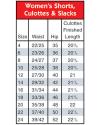Recognize The Signs of Heat Illness
We’re right in the middle of summer, which means hot temperatures and humidity. Even if you do everything you can to stay cool, heat illness can still happen. That’s why it is so important to know the signs of heat illnesses so that if you’re getting sick, you can take the proper measures before it gets too serious. We’ve outlined the symptoms you need to be aware of to stay safe in hot temperatures.
There are three different types of heat illnesses, and certain risk factors can make you more susceptible to any of them. Certain medications can increase your chances of heat illness, so if you’re on prescriptions it might be wise to check with your doctor. Obesity can affect your body’s ability to cool itself, so take extra care if your weight has been a problem for you. You’ll also want to keep an eye on the heat index, as higher humidity makes it harder to keep cool.
The first of the heat illnesses to pay attention to would be heat cramps. This is the least severe of heat illnesses you can experience. With heat cramps, you will experience muscle cramping and spasms due to sweating in high temperatures or due to heavy exercise. The symptoms are easy to notice. Muscles will become hard and tense, and you will have very painful cramps, typically in your calves. Your skin may also become flushed or moist. If you notice these symptoms, it is important that you move somewhere cool and take a break from your route. Gently stretch the muscles that are cramping and if possible, change clothes. Heat cramps usually do not require medical attention, but it’s a good idea to get in touch with your supervisor to seek advisement.
The next, more serious illness is heat exhaustion. This occurs due to a lack of water and salt in the body, meaning the body is unable to cool itself. Cramping will likely occur with this, but there’s more than that. When one is experiencing heat exhaustion they will likely be faced with nausea, vomiting, fatigue, headaches, and general weakness. You may become confused and dizzy. If this goes untreated it can lead to heat stroke, so it is important to take first aid measures immediately. First, get somewhere cool as quickly as you can. Excess clothing should be removed and you will need to take in fluids, preferably sports drinks. But if you don’t start to feel better, you need to get to the emergency rooms.
And of course, the most dangerous heat illness you can face is heat stroke. This means the body’s system is unable to provide heat regulation because it is overwhelmed. If you are experiencing the following symptoms you need to call 911 immediately. Your skin will feel warm and dry. Nausea, vomiting, headaches, confusion, and fatigue can all be present. You will have a fever of 104 degrees or more, and you will likely have a rapid heart rate. You may also experience convulsions and even a loss of consciousness. But you don’t want to wait for all of these symptoms before getting to a hospital. If you experience confusion, anxiety, a changed heartbeat, a rise in body temperature, a decrease or sharp increase in sweating, or convulsions, call 911 immediately. And if any of your other symptoms are not alleviated by moving somewhere cool, get to a hospital because heat stroke could be on its way.
Heat illness is nothing to mess around with. If you are experiencing any of these symptoms, take the necessary steps to keep yourself safe.
July 19, 2017
|
View: 638
|
Categories: Letter Carriers
| Tags: <a class="mp-info" href="https://www.mypostaluniforms.com/blog/tag/usps-employees">USPS employees</a>, <a class="mp-info" href="https://www.mypostaluniforms.com/blog/tag/heat-illness">heat illness</a>, <a class="mp-info" href="https://www.mypostaluniforms.com/blog/tag/heat-stroke">heat stroke</a>, <a class="mp-info" href="https://www.mypostaluniforms.com/blog/tag/heat-exhaustion">heat exhaustion</a>
|
By: <a class="mp-info" href="https://www.mypostaluniforms.com/blog/author/admin">Admin</a>








